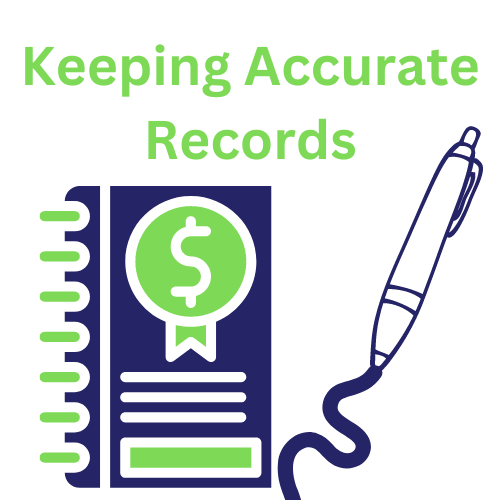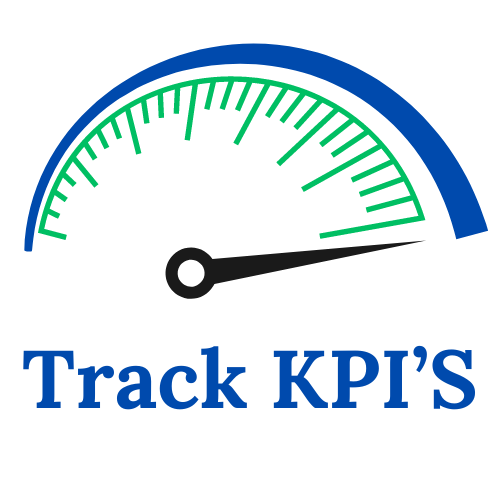The premiere networking group for queer business owners and professionals in the greater St. Louis area.
Track Your Business Finances:
Tips and Best Practices
Managing business finances is crucial for the success and sustainability of any business. Accurate financial tracking helps you understand your company's financial health, make informed decisions, and ensure compliance with legal requirements. Learn to track your business finances right.
Separate Personal and Business Finances
First and foremost, it’s important to track your business finances by keeping them separate from your personal finances. This is like making sure your drag persona has her own bank account – open a business bank account, use business credit cards for all business-related expenses, and avoid personal withdrawals from business funds to keep your records clean and clear.
- Open a Business Bank Account: Ensure all business transactions go through a dedicated business account.
- Use Business Credit Cards: Utilize business credit cards for all business-related expenses.
- Avoid Personal Withdrawals: Refrain from using business funds for personal expenses to maintain clear records.
Implement a Robust Accounting System
Choosing the right accounting software is also essential for tracking your business finances. Think of it as selecting the perfect co-star for your show. Reliable accounting systems like QuickBooks, Xero, or FreshBooks can automate and simplify financial management. Cloud-based solutions provide real-time access to financial data and ease of collaboration, and integrating your accounting software with other business tools like CRM and inventory management systems ensures comprehensive financial tracking.
- Accounting Software: Use software like QuickBooks, Xero, or FreshBooks to automate and simplify financial management.
- Cloud-Based Solutions: Consider cloud-based accounting solutions for real-time access to financial data and ease of collaboration.
- Integrate with Other Tools: Integrate your accounting software with other business tools like CRM and inventory management systems for comprehensive financial tracking.
Keep Detailed Financial Records
Accurate record-keeping is the backbone of financial management and crucial for tracking your business finances. It’s like keeping track of all your fabulous outfits and accessories – you need to record every business transaction, including income, expenses, and transfers. Organize receipts and invoices meticulously, and reconcile your bank statements with your financial records regularly to ensure everything is accurate.
- Track All Transactions: Record every business transaction, including income, expenses, and transfers.
- Organize Receipts: Maintain organized digital or physical copies of all receipts and invoices.
- Regular Reconciliation: Reconcile your bank statements with your financial records regularly to ensure accuracy.

Monitor Cash Flow
Understanding and managing cash flow is key to effectively tracking your business finances. It’s like making sure you always have enough glitter and sequins on hand. Regularly prepare cash flow statements to track the inflow and outflow of cash, maintain a cash reserve to cover unexpected expenses or downturns, and keep a close eye on accounts receivable and payable to manage cash flow effectively.
- Cash Flow Statements: Regularly prepare cash flow statements to track the inflow and outflow of cash.
- Cash Reserves: Maintain a cash reserve to cover unexpected expenses or downturns.
- Monitor Receivables and Payables: Keep a close eye on accounts receivable and payable to manage cash flow effectively.
Budget and Forecast
Budgeting and forecasting are crucial for planning the future and allocating resources efficiently, ensuring you can effectively track your business finances. Create a detailed budget that outlines expected income and expenses, and update it regularly based on actual performance and changing circumstances. Prepare financial projections to anticipate future financial needs and opportunities, ensuring you’re always prepared for the next big act.
- Create a Budget: Develop a detailed budget that outlines expected income and expenses.
- Regular Updates: Update your budget regularly based on actual performance and changing circumstances.
- Financial Projections: Prepare financial projections to anticipate future financial needs and opportunities.
Hire a Professional
Sometimes, you need a professional to help keep things in check and track your business finances accurately. Hiring a professional accountant or bookkeeper can provide expertise and save you time, allowing you to focus on your performance. Certified professionals can assist with tax preparation, compliance, and strategic planning, making sure your financials are in top shape.
- Certified Professionals: Hire certified accountants or bookkeepers with experience in your industry.
- Tax Preparation: Use professionals for tax preparation and filing to ensure compliance and maximize deductions.
- Financial Advice: Consult with financial advisors for strategic planning and investment decisions.

Regular Financial Reviews
Regular financial reviews are essential for staying informed about your business’s financial health and effectively tracking your business finances. Conduct monthly reviews of your income statement, balance sheet, and cash flow statement, looking for trends and patterns that can inform strategic decisions. Adjust your business strategies based on your financial performance and market conditions to stay on track.
- Monthly Reviews: Conduct monthly reviews of your income statement, balance sheet, and cash flow statement.
- Identify Trends: Look for trends and patterns that can inform strategic decisions.
- Adjust Strategies: Adjust your business strategies based on your financial performance and market conditions.
Implement Internal Controls
Implementing internal controls helps ensure the accuracy of your financial records and prevents fraud, which is essential for tracking your business finances. Just like having a backstage manager, segregate financial responsibilities among different employees, implement approval processes for large transactions and expenses, and conduct regular internal audits to ensure compliance with policies and identify discrepancies.
- Segregation of Duties: Divide financial responsibilities among different employees to reduce the risk of fraud.
- Approval Processes: Implement approval processes for large transactions and expenses.
- Regular Audits: Conduct regular internal audits to ensure compliance with policies and identify discrepancies
Use Key Performance Indicators (KPIs)
|
Using Key Performance Indicators (KPIs) helps measure and track your business finances against your goals. Monitor metrics such as profit margin, current ratio, and return on investment (ROI) to evaluate the efficiency of your business operations and investments.
|
Stay Informed and Educated
Finally, staying informed and educated about financial management best practices and industry trends can help you make better decisions and effectively track your business finances. Follow financial news relevant to your industry, take courses and attend workshops on financial management and accounting, and join professional networks to exchange knowledge and experiences with other business owners.
- Financial News: Follow financial news and updates relevant to your industry.
- Training and Courses: Take courses and attend workshops on financial management and accounting.
- Networking: Join professional networks and groups to exchange knowledge and experiences with other business owners.
Track Your Business Finances Conclusion
In conclusion, keeping track of your business finances is essential for maintaining financial health and achieving long-term success. By separating personal and business finances, implementing robust accounting systems, maintaining accurate records, and regularly reviewing financial statements, you can ensure your business remains financially sound. Additionally, seeking professional help, using KPIs, and staying informed will further enhance your financial management capabilities. Follow these tips and best practices to keep your business finances on track and make informed decisions that drive growth and sustainability. Keep your financials as fabulous as your drag, and you’ll be sure to shine in the business world!
Resources: Consider hiring a professional from our LGBTQ+ Directory of Professionals
▼ Follow us on your favorite social media platforms ▼
Queerprofessionalalliance.com © All rights reserved 2025





















